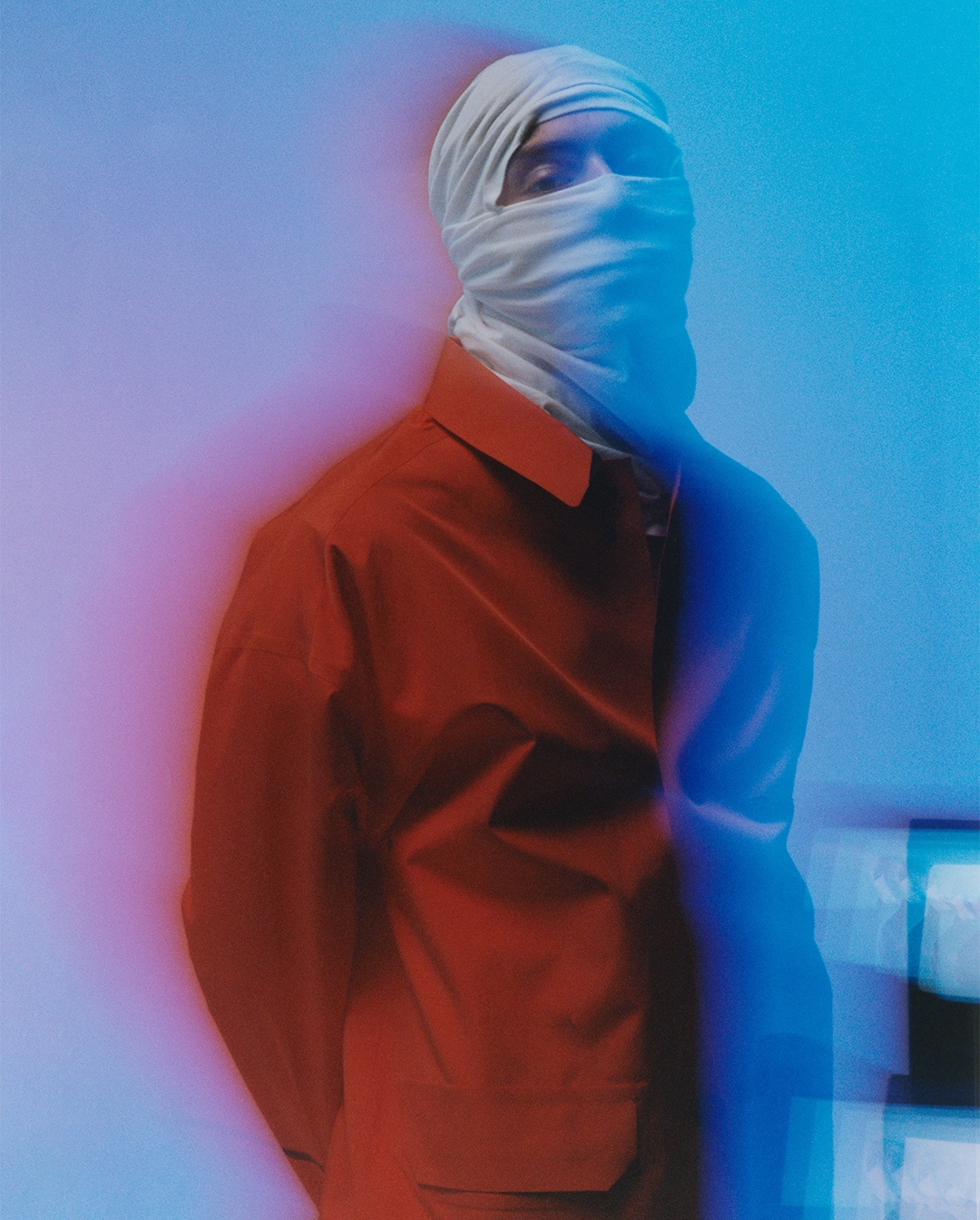He recalls the encounter as feeding his already busy imagination and demonstrating to him that the world was far larger than he had previously thought. The 22-year-old rapper remembers, “I always thought my aspirations were too big for everyone around me, so I couldn’t speak to people about them.” “There is an issue. I always wanted to get away; maybe it’s because of the system. Furthermore, a lot of individuals lack the capacity to want more for themselves. West London was too tiny for Central Cee after these travels.

Central Cee, also known as Cench, was up in Shepherd’s Bush, a short distance from Ladbroke Grove. He grew up in an area of the capital where a diverse range of Black sounds, including dancehall, rap, jazz, and reggae, found a voice and came together. Notably, Cench has only ever missed two Notting Hill Carnivals in his entire. Thus, it seems sense that some of his best and earliest memories are connected to music. He recalls how, on weekends and nights, his dad would pick him up while listening to classic hip-hop, and the three younger brothers would make up rhymes in the back seat of the vehicle. Cench claims that his upbringing in a varied music milieu and his father’s influence combined to set him on this course. He started penning his own raps when he was only eight years old. He says, “What is already yours will come to you eventually.” “I just had to concentrate on my own timing,” the speaker said. “I feel like my abilities are beginning to come through after all these years of work.” It seems like a straightforward motto, but behind it’s a lesson in patience from someone whose creative vision was obviously established early on.
Cench is calm and collected when we speak via Zoom, and he seems at ease sharing personal details about his life. This might be because he feels more at ease being vulnerable at home. Even after over a year of intermittent lockup, the rising star in the UK remains optimistic, imaginative, and hungry. He has released many groundbreaking songs in the last year, including Day in the Life, Molly, Loading, and his Mad About Bars freestyle, which have all helped establish him as a major player in the thriving UK rap scene. Day in the Life, where he raps animatedly, “You ain’t never sat in the trap with a pack/ Hear the doorbell ring and your heartbeat lag,” is one of the tunes that showcase this fun, intelligent, and socially conscious musician. His tone and cadence are straightforward, which highlights his perceptive views. Cench also favors production that highlights his vocals, which often sounds like a mash-up of all the genres he grew up listening to, including jazz, soul, and hip-hop. A jazz sample laid on a swaying drill bed can be heard in Loading, which is an example of his early influences.

Even though Central Cee has only lately gained popularity, those who have been paying close attention will realize that they have been setting the foundation for some time. He stood out in 2015 when he filmed a freestyle for LinkUpTV over J. Cole’s A Tale Of 2 Citiez. An early taste of his versatility as a rapper came with the publication of Over You in 2017—a love tale that sonically differs greatly from his more recent work. Even though he has a deeper voice and writes in a more reflective and varied style, the early years of honing his craft are evident in the way he now structures his bars—they are sharp and succinct at the same time. He raps, effortlessly switching between self-affirmation and the grandiose, “If you’ve got what it takes I’ll take it/ This shit took ages/ Should know that you can’t rush greatness/ But you’re too impatient,” on his Mad About Bars freestyle.
Cench, the oldest of four brothers, realized at a young age the dangers and hardships of growing up in west London. “Aside from my cousins, who I didn’t spend much time with, I didn’t have any elder relatives. It forced me to mature more quickly and made me more responsible,” he admits bluntly. “You may pick up a lot of priceless lessons from driving. At the very least, I believe I gained more survival skills traveling to and from school than I did in actual classes. Cench is a direct and inquisitive person who never shies away from a challenge: “I would often doubt what I was seeing since I couldn’t always explain why some things weren’t correct. However, that’s the typical way of life for a lot of people in my hometown,” he clarifies. This insight has naturally found its way into his lyrics: in his Mad About Bars freestyle, he remarks, “I’m from a city full of skyscrapers, Armed feds, X5s, high speed chases/ Now they wanna help I don’t need your favours/ When I needed help I couldn’t see faces.” “Although I’m young, my lyricism has a certain depth,” he says carefully. “My old music and my current music don’t really differ in terms of writing; I was still expressing my emotions.”

“You may pick up a lot of priceless lessons from driving. Rather than at school, I believe I learnt more on the walk to and from it.
Perhaps it is because, like a lot of children growing up in inner cities, he was raised near really affluent neighborhoods. Shepherd’s Bush is quite close to Holland Park, which has immaculate, picture-perfect surroundings and multimillion-pound houses. While traveling London as a teenager, Central Cee realized he desired more for himself. The day he entered a recording studio for the first time was when he realized he could succeed. In 2013, he went into the studio with a buddy from school to record his debut song. He smiles and replies, “It was a good day, I remember it vividly.” That really altered the way I approached things and motivated me to record more. I felt the courage to release things after that event, particularly after hearing what I had just produced,” he remembers. “Studios weren’t as accessible back then as they are now, but it still made this real to me.” Sending the music to females and other people made me feel amazing since I had written it.
Going to a studio, recording, and then hearing your own music again is a ritual that may be very transforming for a young person who feels disenfranchised and neglected. Cench always wanted to be a musician, so it was a big deal when his dream came true. He recalls, “I wasn’t even living at home when I was 14 years old, so I didn’t really care about much back then.” During that time, he traveled a lot and stayed with friends, but music helped him remain focused. “Music was simply on my mind. I had no idea how it operated. Since I had no one to turn to, I had to forge my own path and aspirations.

His next project, Wild West, is set to release over a year after the successful series of songs in 2020 that heralded Central Cee’s arrival. His idea is realized on the mixtape with brutal stories of life in the trap, revolving around themes of overcoming adversity and paving your own path according to your own terms. The catchy first line of Pinging (6 Figures) begins, “Take that risk and go independent, I just turned down six figures.” Cench then asserts, “I don’t wanna hear no Samsung ring, I don’t wanna hear that sound/ The kids these days don’t care ’bout getting in a bag, they just care about clout.” Though he sometimes celebrates his own ascent to fame on songs like Hate It or Luv It, his approach is far more observational than participative, and you can’t help but get the impression that he’s observing the world and reflecting back. Something that is both proving himself unique and validated by his own experience growing up in a close-knit neighborhood. “I never felt the need to be with a group because I always preferred being by myself and enjoyed my own company,” he recalls. “It helped me become more aware of my surroundings while everyone else was engrossed in it, and they’ve all become accustomed to the nonsense in ends.”

“I’ve always loved spending time alone. It helped me become more aware of my surroundings.
Without a question, Central Cee will continue to hone a voice that already seems vital in the scene and enjoy the benefits of years of perseverance and self-belief in 2021. As usual, however, he’s still learning. “My future has always been visible, but it’s much more apparent today. He muses wisely, “What I’ve realized today is how difficult it is to have a picture of the future. He still acts a lot like that inquisitive youngster taking in the city while riding the bus. These days, his attitude to life is very aware; patience, being in the moment, and gratitude: He states, “I don’t have any expectations of where I’m supposed to be.” “But I am truly appreciative right now.”

